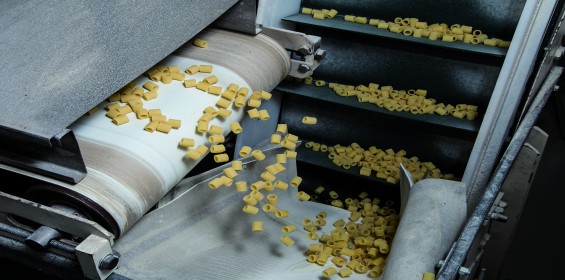Precision temperature control for manufacturing
Published: 15 March, 2019
It can be a challenge to maintain efficiency in manufacturing processes that rely on rapid temperature change, they are energy intensive and will often form a natural bottle-neck in an overall process. Implementing a new control strategy that is both more accurate and responsive can therefore bring improvements to both productivity and process efficiency. PWE reports.
Temperature controlled processes are used in a number of manufacturing industries. Some varied, but relevant examples are aluminium die casting, injection moulding, extrusion processes, and a range of food manufacturing techniques. In all cases the precise and consistent control of temperature through accurate heating and cooling is very important in terms of product quality and process efficiency.
By looking at a few examples, it is possible to understand how a modular process control platform can be used to create a tailored solution for any manufacturing process. In each case the challenges are assessed, and a combination of expert design and proven technology is used to deliver the optimum solution.
Casting the die
In the manufacture of high-pressure die-cast aluminium parts, tool temperatures have a significant influence on surface finish, dimensional accuracy and the amount of finishing required. At the same time, cost-effective manufacturing requires cycle times and reliability to be optimised, which leads to a need for automated systems with the fastest practical cycle times.
Optimising this process requires a highly dynamic control system that comprises precision temperature sensors, flow control valves and isolation valves that can reliably manage the fast heating and cooling rates of the thermoregulation process. In applications that use spray cooling, it must be capable of controlling the cooling process by means of exactly regulated quantities of water, air or a mixture of the two. Similarly, tool manufacturers that need to develop complex and intricate shapes for metal and plastic moulds often use conformal cooling to ensure product quality as well as reduced cycle times.
By implementing a modular process control system, it is possible to integrate it with existing machinery and add as many sensors and control valves as necessary to deliver an ideal solution regardless of the original manufacturer. With sufficient planning and design expertise, the modular platform can also provide flexibility in the wider manufacturing process by enabling fast, efficient batch changeovers and quick adaptation for new lines.
Fantastic plastic
One of the major challenges in injection moulding is to produce parts that fall from the die ready for use and do not need additional processing. Typical examples would be high-volume precision moulded components for consumer products such as LCD screen frames, phone, laptop casings and similar items.
An important contribution towards achieving this aim is made by vario-thermal control of the injection-moulding tool. Only with this technique is it possible to produce plastic parts without distortion, with the right size and with high surface quality regarding gloss, haptic properties and lack of weld lines.
The main temperature regulation challenge is to enable rapid changes between hot temperatures, around 180°C during the injection phase, and cooler temperatures of approximately 100°C. Of course, this should be achieved with low cycle times as far as possible to maintain productivity.
The key is to position the valve switching station close to the tool, so the transition from hot to cooler temperatures involves only a very small exchange of water within the system. In conjunction with accurate temperature measurement and flow control valves it is possible to create a very reliable and efficient process by implementing a modular process control platform. This enables the seamless integration of sensors, flow measurement devices and flow control valves within an existing installation.
Improving profile accuracy
Extrusion technology is used to manufacture a wide range of products using plastics and metals and the overriding objective is to produce a uniform profile without distortion or variation in the dimensions. The decisive factor in achieving this goal is maintaining the correct process temperatures, regardless of external influences.
In this example the cooling process is as important as the heating procedures and as such industrial extrusion equipment will benefit from a modular process control platform. As a complete process temperature regulation system, this solution automates the controlled heating of the extruder sections and targeted cooling in the subsequent calibration stations.
With a flexible layout, each system allows the highest levels of quality to be achieved because the number of cooling points and nozzles can be varied and each one can be equipped with a dedicated, decentralized control unit. By working with expert designers, it is possible to create bespoke temperature control systems that provide the necessary levels of flexibility and reliability.
In each of these applications there is a demand for precision control of temperature and a need to compensate for variables such as ambient temperatures, requiring the control system to adjust accordingly.
***********
Bürkert has introduced a new modular range of products offering seamless integration of sensors, precision flow measurement devices and flow control valves that can be used to create very accurate and highly responsive temperature control systems. The Modular Process Control Platform offers flow control solutions for processes that are powered electrically, pneumatically or manually and can implement a range of flow control technologies.
For further information please visit: www.burkert.co.uk
*********************







